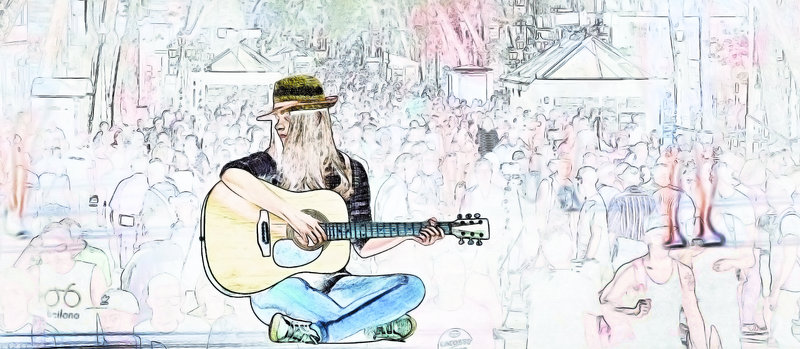THE CULTURAL TIGHTROPE
BARNEY GRIFFITHS
Finding home
My situation is very different to that of immigrant families forced to leave their homeland due to economic hardship or worse.
Obviously, I’m very lucky. Just hearing what the floods of refugees have had to endure since they were forced to leave their war-torn homeland makes me realise that. I chose to leave my homeland many years ago, and it’s a decision I ponder from time to time when reflecting on the life I have constructed for myself here in Catalonia over the past 22 years. So many cultural differences, some making you feeling estranged, not part of the fabric of society, and contrarily, some making you feel at home when you have assimilated them into your life.
What has made me really feel as one with my adopted homeland and Barcelona in particular was the recent terror attack on Les Rambles. It happened precisely where I used to stand and busk with a couple of friends some 20 years ago, singing songs as much to please other people and make friends as to actually make any money. A few days after the atrocity, I went back to that spot, and as I hesitantly traced the course of the van that had ploughed down the top part of Les Rambles, my Rambles, our Rambles, indiscriminately slaughtering, maiming and injuring passers-by, I was gripped by a sense of belonging that I can’t fully explain in words. The memorials, tributes, flowers and candles that lined the route, with heartfelt messages of love and human kindness brought out in me a feeling of oneness with the city, with the community, and made me realise just how much Barcelona and Catalonia mean to me as my adopted homeland. It was, in fact, a great feeling of release; after so many years living here it felt like I’d finally understood, despite being born in England and having all the cultural baggage that goes with it, that this is and always will be home. It was as if I finally accepted myself having a dual or even plural identity.
When I later returned to a more cerebral state, I began to think about how little identified with their society the perpetrators must have felt to be able to carry out such an act. There has been a great deal of soul-searching since 17th August, and many questions asked to try and determine why these young men could be so radicalised to do what they did to their own society.
My own conclusions, which are related to the feelings mentioned above, are that in order to foster feelings of integration, oneness and love among young immigrants, they need to reconcile their dual or plural identity and those around them need to help them do this. My situation is very different to that of immigrant families forced to leave their homeland due to economic hardship or worse. But it seems to me that what we need to search for now as a society are the cultural means to help the coming generations feel something akin to the feeling that came over me as I reached the Joan Miro mosaic, where the van had come to a stop that day, but which was now covered with flowers and an overwhelming expression of oneness.





